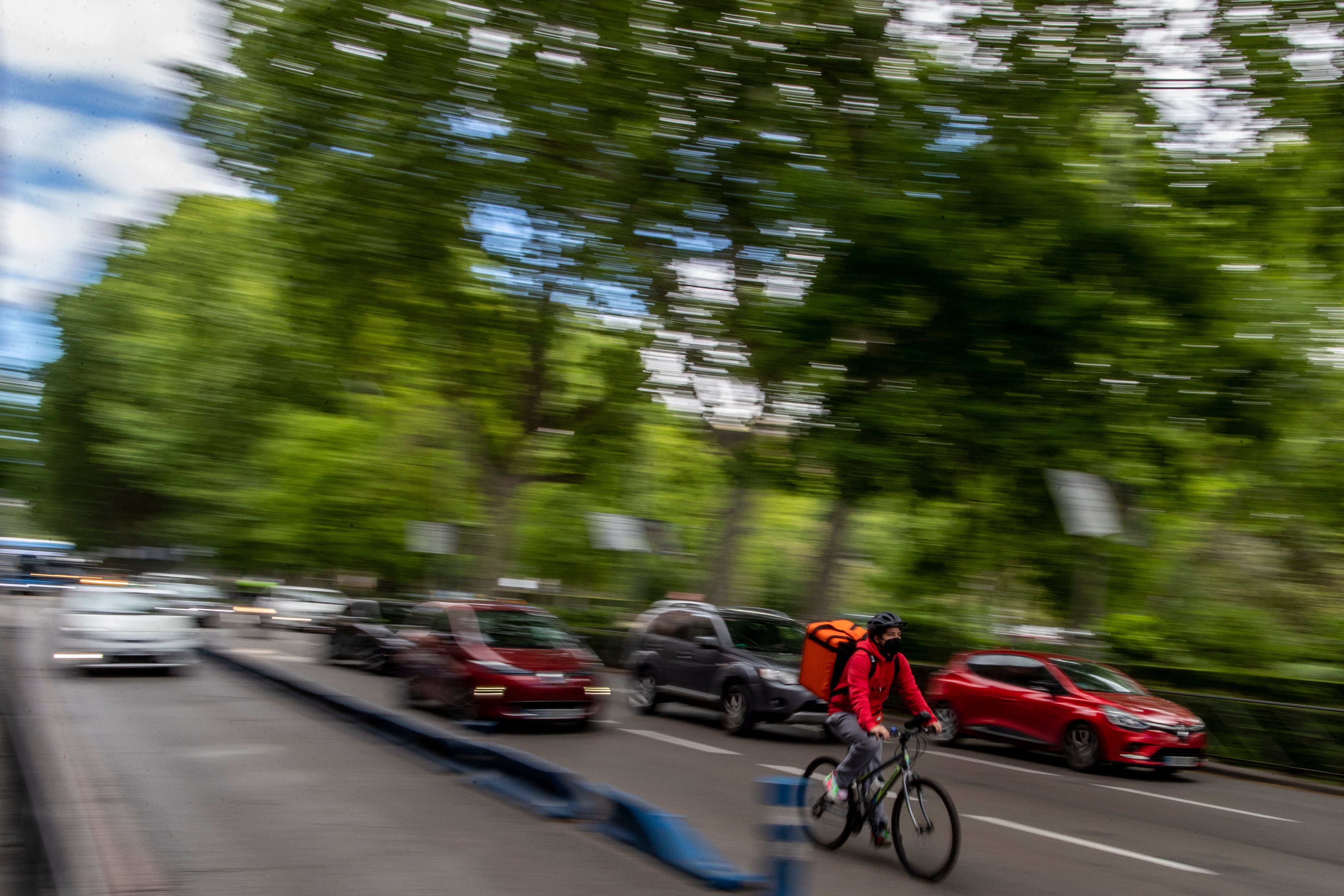Spain adopts landmark law to protect 'gig' delivery workers
Spain has approved a pioneering law that gives delivery platforms a mid-August deadline to hire the workers currently freelancing for them and that requires transparency of artificial intelligence used to manage workforces

Your support helps us to tell the story
From reproductive rights to climate change to Big Tech, The Independent is on the ground when the story is developing. Whether it's investigating the financials of Elon Musk's pro-Trump PAC or producing our latest documentary, 'The A Word', which shines a light on the American women fighting for reproductive rights, we know how important it is to parse out the facts from the messaging.
At such a critical moment in US history, we need reporters on the ground. Your donation allows us to keep sending journalists to speak to both sides of the story.
The Independent is trusted by Americans across the entire political spectrum. And unlike many other quality news outlets, we choose not to lock Americans out of our reporting and analysis with paywalls. We believe quality journalism should be available to everyone, paid for by those who can afford it.
Your support makes all the difference.Spain approved a pioneering law Tuesday that gives delivery platforms a mid-August deadline to hire the workers currently freelancing for them and that requires transparency of artificial intelligence used to manage workforces.
The new law approved by the center-left ruling coalition comes in the wake of a ruling by Spain's top court last year and at a time when other countries in Europe and elsewhere are deciding on a labor model for the so-called gig economy.
The government's move has angered digital businesses and some food delivery workers who took to the streets on Tuesday in different Spanish cities because they say that remaining self-employed benefits them.
Labor Minister Yolanda Díaz said Spain was the first country to take legislation on the relationship between delivery platforms and their workforce this far.
“We are at the vanguard and the world is looking at us,” Díaz told reporters following a weekly Cabinet meeting.
She said the move was an effort to protect the most vulnerable and that reflected the “new winds” that across the world were implementing trying to increase the wellbeing of citizens.
“Workers cannot leave their soul on the keyboard of our laptops or on electronic gadgets,” Díaz said.
The government's law has been the result of an agreement with the country's main workers' unions and industry associations, although smaller groups representing Uber Eats, Deliveroo Glovo and other main players in the market claim they have been sidelined in the negotiations.